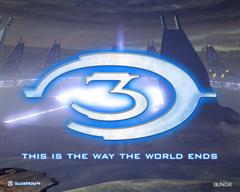 “Halo 3” debuted with as much buzz and fanfare as its predecessors, maybe more, but there’s no surprise there. Rated “M” for “Mature, it’s the top selling video game of all time. But perhaps what might stun readers is that this killing-game is apparently being used to save young men across America with Jesus–or at least get them into through their evangelical church’s doors.
“Halo 3” debuted with as much buzz and fanfare as its predecessors, maybe more, but there’s no surprise there. Rated “M” for “Mature, it’s the top selling video game of all time. But perhaps what might stun readers is that this killing-game is apparently being used to save young men across America with Jesus–or at least get them into through their evangelical church’s doors.
Across the country, hundreds of ministers and pastors desperate to reach young congregants have drawn concern and criticism through their use of an unusual recruiting tool: the immersive and violent video game Halo…The alliance of popular culture and evangelism is challenging churches much as bingo games did in the 1960s. And the question fits into a rich debate about how far churches should go to reach young people. Far from being defensive, church leaders who support Halo — despite its “thou shalt kill” credo — celebrate it as a modern and sometimes singularly effective tool. It is crucial, they say, to reach the elusive audience of boys and young men…Once they come for the games, Gregg Barbour, the youth minister of the [Colorado Community Church] said, they will stay for his Christian message. “We want to make it hard for teenagers to go to hell,” Mr. Barbour wrote in a letter to parents at the church. But the question arises: What price to appear relevant? Some parents, religious ethicists and pastors say that Halo may succeed at attracting youths, but that it could have a corroding influence.
What do you think? Is “Halo 3” is a clever recruiting tool for saving souls? Or have pastors who resort to using “Halo 3”–a game that is nothing if not all about killing–strayed too far in their attempts to spread a “Christian message” to youth?
Read Richtel’s full story here.


